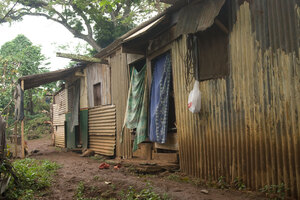[Originally published in the Vanuatu Daily Post’s Weekender Edition.]
“The People who once upon a time handed out military command, high civil office, legions – everything, now restrains itself and anxiously hopes for just two things: bread and circuses.”
The Roman poet Juvenal wrote these lines in his Satires a little over a hundred years after the birth of Christ. He accuses the people of Rome – at the time the most powerful empire in the world – of losing sight of their civic responsibilities, giving everything up in exchange for gifts of grain and public entertainments.
People are always quick to draw parallels between modern USA and ancient Rome in its decline. But we can draw a more direct lesson from Juvenal’s tirade: Whether through a lack of concern or naïveté, our own choices have led us to the apparent security crisis we face today.
At least the Romans got free food and entertainment out of the bargain. Here in Vanuatu, we don’t even get that. We relinquish our societal responsibilities to others, and receive only danger in exchange.

